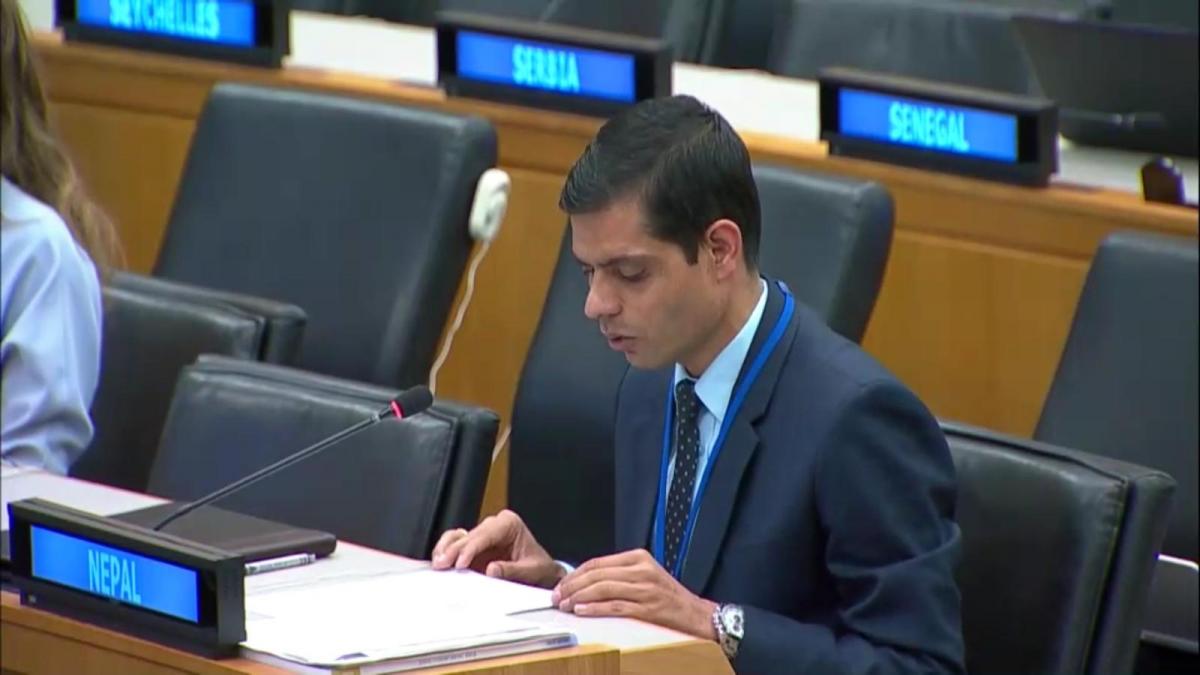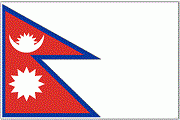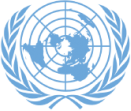
Mr. Chairman,
First of all, I thank the Secretary-General and his team for comprehensive reports produced under this agenda item.
I align myself with the statements delivered by the State of Palestine on behalf of Group of 77 & China and by Malawi on behalf of the Group of Least Developed Countries.
Mr. Chairman,
The scale of ambition of the 2030 Agenda demands a highly responsive, effective and streamlined UN development system.
Nepal believes that the QCPR resolution adopted in December 2016 and the resolution 72/279 on the repositioning of the UNDS, provide a good guidance to strengthen the development pillar of the Organization.
Country ownership and leadership should be at the core while implementing all development outcomes including 2030 Agenda, Istanbul Programme of Action and Vienna Programme of Action. No accomplishment can be sustainable in the long run without national ownership.
UNRC’s core function should be to coordinate work of multiple UN agencies present in the field and produce a coherent development result in line with the national plans and policies. Accountability as mentioned in resolution 72/279 should underpin the work of the system.
As said during the presentations this morning, the UNDS repositioning is a work in progress. Nonetheless, avoiding long transition is crucial and all efforts should now be focused on the implementation of the 2030 agenda. This sense of purpose should guide our discussions for new cycle of QCPR which will begin next year.
Country-specific new UNDAF, and Country Programme Documents of Funds and Programme, should be coordinated and aligned with the mainstream development plans and priorities of the governments while ensuring national ownership throughout the process.
Any failure to do so can result in duplicities and waste of resources. This will not only erode trust and confidence but also will jeopardize the UN’s credibility itself in the long run.
Mr. Chairman,
Nepal’s priority now is on development and prosperity. In this regard, Nepal puts faith in the repositioned UNDS that it will be able to effectively cater to our development needs and priorities in the changed context.
Adequate means of implementation and its optimum utilization is crucial for empowered and impartial RC system. Funding should be predictable and aligned with the priorities of countries. Core resources are the bedrock of the UNDS. The international community should urgently work to bridge the widening funding gap to ensure achievement of the SDGs by 2030.
Mr. Chair
South-South cooperation has a critical role to play, as a complement to the North-South Cooperation, for implementing Agenda 2030. My delegation welcomes the BAPA+40 Conference held in Buenos Aires this year, and the outcome document adopted therein.
The momentum of BAPA+40 should inspire us to raise our ambition and harness the benefits of South-South Cooperation.
I conclude, Mr. Chairman, by stressing that if the reinvigorated system fails to deliver on its promises, the severest brunt will be on the most vulnerable countries and those that are the furthest behind. The true litmus test of the efficacy of Organization will be its ability to deliver to the needs of such countries.
I thank you, Mr. Chairman.


